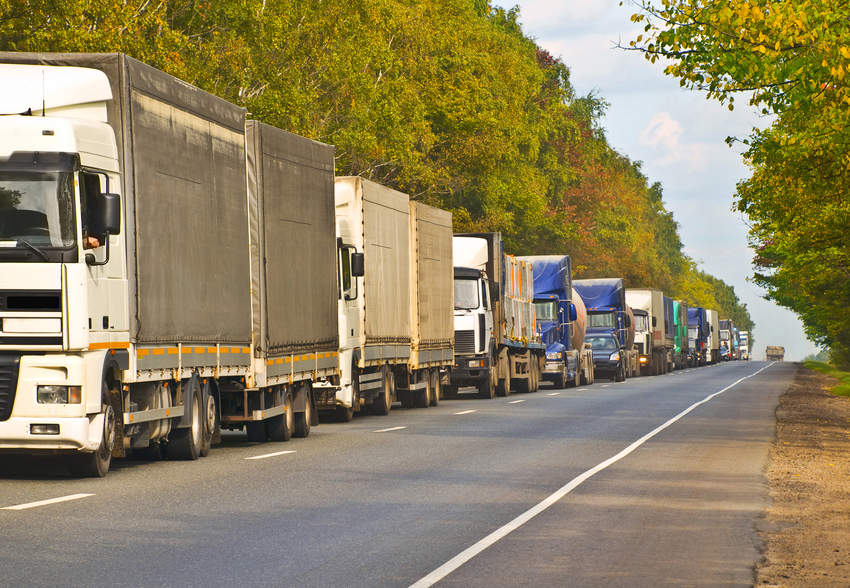
The UK road haulage sector is a vital component of the country’s economy, underpinning supply chains, facilitating trade, and ensuring goods reach their destinations efficiently. As we approach 2025, the industry is set to undergo significant transformations driven by technological advancements, regulatory changes, and shifting market demands. This blog explores the key trends shaping the future of road haulage companies and what businesses can expect in the coming years.
1. Embracing Green Logistics
Sustainability is at the forefront of discussions in the logistics industry, and road haulage companies are no exception. With growing pressure to reduce carbon emissions and comply with stricter environmental regulations, the shift towards green logistics is inevitable.
Key developments include:
-
Electric and Hydrogen-Powered Vehicles: By 2025, more haulage companies will adopt electric and hydrogen-powered trucks to meet environmental targets and reduce fuel dependency. Government incentives and advances in charging infrastructure will play a crucial role in this transition.
-
Optimized Routes for Fuel Efficiency: Leveraging AI-powered route optimization tools will help minimize fuel consumption and carbon emissions.
-
Eco-Friendly Packaging: Companies are also likely to promote sustainable packaging solutions to align with broader green initiatives.
2. Advancements in Technology
Technological innovations will redefine how road haulage companies operate, improving efficiency and customer satisfaction. Some critical areas to watch include:
-
Autonomous Vehicles: While fully autonomous trucks might not dominate the roads by 2025, semi-autonomous systems with features like lane assistance and adaptive cruise control will become increasingly common.
-
Telematics and IoT: Advanced telematics systems and IoT sensors will enable real-time tracking of goods, vehicle diagnostics, and predictive maintenance, reducing downtime and enhancing operational efficiency.
-
AI and Big Data: Road haulage companies will use AI and big data analytics to forecast demand, plan deliveries, and optimize warehouse management.
3. Workforce Challenges and Automation
The driver shortage remains a persistent issue for the UK’s road haulage sector. However, automation and upskilling initiatives are expected to address this challenge:
-
Attracting New Talent: Improved working conditions, better pay, and training programs will aim to attract younger drivers to the profession.
-
Driver Assistance Systems: Technologies that support drivers, such as fatigue monitoring and collision prevention systems, will enhance job safety and appeal.
-
Increased Automation: From automated warehouses to self-driving trucks, automation will alleviate some workforce pressures while reshaping job roles within the industry.
4. E-commerce Growth and Last-Mile Delivery
The continued rise of e-commerce has heightened the demand for efficient last-mile delivery solutions. By 2025, road haulage companies will adapt to meet the needs of consumers who expect faster and more reliable deliveries:
-
Micro-Hubs: Urban micro-distribution centers will enable quicker deliveries while reducing congestion in city centers.
-
Electric Vans for Last-Mile Deliveries: Small, eco-friendly electric vehicles will become the norm for short-distance delivery services.
-
Real-Time Tracking: Enhanced tracking systems will allow customers to monitor their deliveries more accurately.
5. Regulatory Changes
Regulatory developments will continue to impact the operational landscape for road haulage companies. Key areas of focus include:
-
Post-Brexit Adjustments: Ongoing adaptations to customs and trade rules will shape how goods are transported across borders. Streamlined digital systems and improved processes will aim to reduce delays.
-
Clean Air Zones (CAZs): More cities across the UK are likely to implement CAZs, prompting haulage companies to invest in compliant, low-emission vehicles.
-
Driver Hours and Safety Regulations: Stricter enforcement of driver working hours and safety standards will ensure safer and more ethical practices within the industry.
6. Collaboration and Consolidation
The road haulage sector is expected to witness increased collaboration and consolidation by 2025. Smaller companies may merge with larger players to achieve economies of scale and compete more effectively in a challenging market:
-
Shared Resources: Collaboration among companies to share warehouses, vehicles, and technology will enhance efficiency.
-
Strategic Partnerships: Partnerships with technology firms and e-commerce platforms will help haulage companies innovate and grow.
7. Focus on Resilience and Risk Management
The pandemic and geopolitical disruptions have highlighted the importance of resilience in supply chains. By 2025, road haulage companies will prioritize risk management strategies to navigate uncertainties:
-
Diversified Supply Chains: Companies will avoid over-reliance on specific routes or suppliers.
-
Scenario Planning: Advanced modeling and forecasting tools will help businesses prepare for potential disruptions.
-
Insurance and Contingency Plans: Investments in robust insurance policies and contingency measures will mitigate financial risks.
Conclusion
The future of road haulage in the UK is one of transformation and opportunity. While challenges such as driver shortages, regulatory pressures, and environmental concerns persist, innovations in technology, sustainability initiatives, and collaborative strategies offer promising solutions. Road haulage companies that adapt to these trends will not only stay competitive but also play a pivotal role in driving the UK’s economic growth.
As 2025 approaches, businesses and stakeholders in the logistics sector must remain agile, leveraging emerging technologies and adopting forward-thinking strategies to thrive in an ever-changing landscape.





Leave a Reply